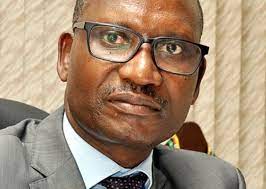TRANSPARENCY: CoST Uganda Commissions 2nd Infrastructure Transparency Index
By PATRICK JARAMOGI
KAMPALA, Uganda [SHIFTMEDIA] Unsafe abortion continues to contribute to serious public health concerns in Uganda. A 2010 report by the Ministry of Health estimated that 8% of the maternal deaths in Uganda were due to unsafe abortion.
Though the law in Uganda explicitly allows abortion to save a womans life, debate is raging on whether to legalize abortion in cases of rape, incest and fetal anomaly.
Primah Kwagala the Executive Director Womens Probono Initiative (WPI), a renowned activist and human rights lawyer insists women should have a right to determine what goes inside their bodies.
“We are advancing gender equality. We want women to be in charge of their bodies, and to decide the narrative of their bodies,” said Kwagala. She was presenting a paper during a public debate titled: ‘The Right to Abortion in Uganda Myth or Reality”.
The debate held at the Makerere University School of law was organized by the Women’s Probono Initiative, Human Rights Peace Center (HURIPEC), Makerere School of Law, Human Rights Awareness and Promotion Forum (HRAPF).
Kwagala noted that abortion begun way back in the traditional times. “We know of local herbs that girls and women used such as Oluwoko, enanda, akamwanyi mwanyi, to removed unwanted pregnancies arising out of incest, rape, or before marriage,” said Kwagala.
She said that in the pre-colonial times, abortion was a communal decision rather than an individual. “Families made the decision in situations of rape, incest, pregnancy outside marriage and other instances considered shameful. Women didn’t have agency to make decisions affecting their bodies,” said Kwagala.
Kwagala said much as she doesn’t support abortion, the practice remains high in Uganda leading to many deaths. “There is a policy supported by the Ministry of Health on Post abortion services, but there is policy that supports abortion, yet it is done privately in hidden circles,” she said. Kwagala observed that the existing laws and policies on abortion are interpreted inconsistently by the law enforcement and judicial system, making it difficult for women and the medical community to understand when abortion is permitted.
“Women’s rights and Sexual Reproductive Health Rights (#SRHR) are inseparable. Every woman deserves the right to choose, to access healthcare, and to be free from discrimination. Let’s continue advocating for a world where women’s rights are human rights, and SRHR is a reality for all,” she said.

Dr. Daniel Ruhweza, the Senior Lecturer, School of Law, Makerere University said every life deserves to be protected. “The issue of abortion is a controversial one. I teach master’s students of law majoring in Treaties. Much as Uganda signed the treaty against abortion (Maputo Protocol), it has a reservation clause regarding implementation,” he explained.
Quoting Jeremiah 1.5, Dr. Ruhweza noted that termination of un-born child is against God’s will. “No one has a right to terminate the life of another person. What we should advocate for is to fight practices that lead to unwanted pregnancies,” said Ruhweza. He said terminating the life of a child in the womb remains illegal in Uganda, though he acknowledges that its done.
Dr. Adrian Jjuuko the Executive Director Human Rights Awareness and Promotion Forum (HRAPF) said women have a right to determine whether to carry a pregnancy or not. He noted that it all depends on at what stage the life of the fetus is terminated.








